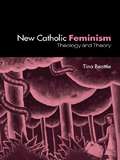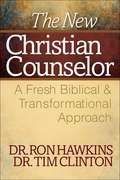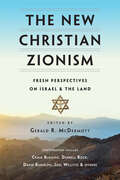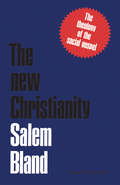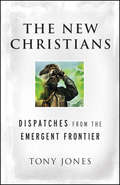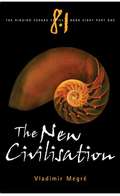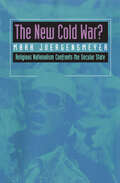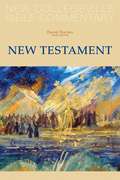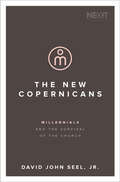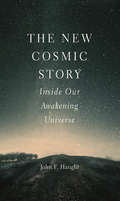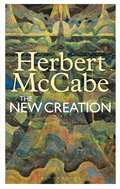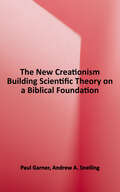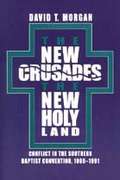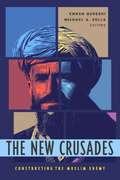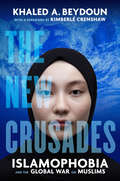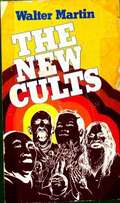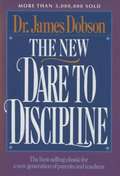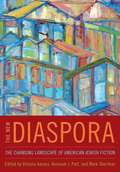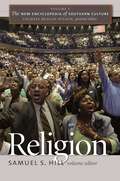- Table View
- List View
The New Cambridge History of Islam
by Robert W. HefnerUnparalleled in its range of topics and geographical scope, the sixth and final volume of The New Cambridge History of Islam provides a comprehensive overview of Muslim culture and society since 1800. Robert Hefner's thought-provoking account of the political and intellectual transformation of the Muslim world introduces the volume, which proceeds with twenty-five essays by luminaries in their fields through a broad range of topics. These include developments in society and population, religious thought and Islamic law, Muslim views of modern politics and economics, education and the arts, cinema and new media. The essays, which highlight the diversity and richness of Islamic civilization, engage with regions outside the Middle East as well as within Islam's historic heartland. Narratives are clear and absorbing and will fascinate all those curious about the momentous changes that have taken place among the world's 1. 4 billion Muslims in the last two centuries.
The New Cambridge History of THE BIBLE
by John RichesThe political, technological, and cultural upheaval of the past two-and-a-half centuries has dramatically altered how we read and understand the Bible. This volume examines the Bible's role in the modern world - beginning with a treatment of its production and distribution that discusses publishers, printers, text critics, and translators and continuing with a presentation of new methods of studying the text that have emerged, including historical, literary, social-scientific, feminist, postcolonial, liberal, and fundamentalist readings. There is a full discussion of the changes in understandings of and approaches to the Bible in various faith communities. The dissemination of the Bible throughout the globe has also produced a host of new interpretations, and this volume provides a comprehensive geographical survey of its reception. In the final chapters, the authors offer a thematic overview of the Bible in relation to literature, art, film, science, and other disciplines. They demonstrate that, in spite of challenges to the Bible's authority in western Europe, it remains highly relevant and influential, not least in the Americas, Africa, and Asia.
The New Cambridge History of The Bible
by Richard Marsden E. Ann MatterThis volume examines the development and use of the Bible from late Antiquity to the Reformation, tracing both its geographical and its intellectual journeys from its homelands throughout the Middle East and Mediterranean and into northern Europe. Richard Marsden and Ann Matter's volume provides a balanced treatment of eastern and western biblical traditions, highlighting processes of transmission and modes of exegesis among Roman and Orthodox Christians, Jews and Muslims and illuminating the role of the Bible in medieval inter-religious dialogue. Translations into Ethiopic, Slavic, Armenian and Georgian vernaculars, as well as Romance and Germanic, are treated in detail, along with the theme of allegorized spirituality and established forms of glossing. The chapters take the study of Bible history beyond the cloisters of medieval monasteries and ecclesiastical schools to consider the influence of biblical texts on vernacular poetry, prose, drama, law and the visual arts of East and West.
The New Cambridge History of The Bible
by James Carleton Paget Joachim SchaperRecent years have witnessed significant discoveries of texts and artefacts relevant to the study of the Old and New Testaments and remarkable shifts in scholarly methods of study. The present volume mirrors the increasing specialization of Old Testament studies, including the Hebrew and Greek Bibles, and reflects rich research activity that has unfolded over the last four decades in Pentateuch theory, Septuagint scholarship, Qumran studies and early Jewish exegesis of biblical texts. The second half of the volume discusses the period running from the New Testament to 600, including chapters on the Coptic, Syriac and Latin bibles, the 'Gnostic' use of the scriptures, pagan engagement with the Bible, the use of the Bible in Christian councils and in popular and non-literary culture. A fascinating in-depth account of the reception of the Bible in the earliest period of its history.
The New Cambridge History of the Bible: The New Cambridge History of the Bible
by Euan CameronThis volume charts the Bible's progress from the end of the Middle Ages to the Enlightenment. During this period, for the first time since antiquity, the Latin Church focused on recovering and re-establishing the text of Scripture in its original languages. It considered the theological challenges of treating Scripture as another ancient text edited with the tools of philology. This crucial period also saw the creation of many definitive translations of the Bible into modern European vernaculars. Although previous translations exist, these early modern translators, often under the influence of the Protestant Reformation, distinguished themselves in their efforts to communicate the nuances of the original texts and to address contemporary doctrinal controversies. In the Renaissance's rich explosion of ideas, Scripture played a ubiquitous role, influencing culture through its presence in philosophy, literature, and the arts. This history examines the Bible's impact in Europe and its increasing prominence around the globe.
The New Catholic Feminism: Theology, Gender Theory and Dialogue (The\earthscan Forest Library)
by Tina BeattieIt is hard to over-estimate the challenge that feminism poses to Roman Catholicism. Pope John Paul II's call for a 'new feminism' has led to the development of a Catholic theological response to the so-called 'old feminism'. The New Catholic Feminism sets up a dramatic encounter between the orthodox Catholic establishment and contemporary critical theory, including feminist theology and philosophy, queer theory, and French psycholinguistics, in order to explore fundamental questions about human identity, personhood and gender. From the naked bodies of Eden to the 'gay nuptials' of liturgy, it argues that the strange and volatile world of Catholic sexual symbolism cannot be 'tamed' to meet the ideological agendas of either feminist theology or conservative Catholicism. Only through a radical re-evaluation of the sacramental significance of the sexed human body might the Catholic Church provide a redemptive response to the sexual politics of contemporary society.
The New Christian Counselor: A Fresh Biblical and Transformational Approach
by Tim Clinton Ron HawkinsSeasoned counselors and professors Ron Hawkins and Tim Clinton offer a comprehensive guide that empowers Christian counselors by clarifying their task: to help people take possession of their souls. . . through the power of the Spirit under the authority of the Word in a supportive community of accountability that they may be like Christ The authors address head-on today's enticing new imitations of true peace and tantalizing opportunities for people in pain to anesthetize themselves. But they also highlight the foundation of hope: God loves, he empowers, and he refuses to abandon his passion for connection with his children. Case studies illustrate how to help people take possession of the thinking self, the feeling self, the decision-making self, the physical self, and the relational self. This comprehensive plan for effective intervention is perfect for lay counselors, students, and professionals looking for ways to integrate their faith and practice.
The New Christian Zionism: Fresh Perspectives on Israel and the Land
by Gerald R. McDermottThe New Christian Zionism
The New Christianity: The Theology of the Social Gospel
by Richard Allen Salem BlandThis volume, a survey of the Canadian scene that urged various reforms, appeared shortly after the First World War. It was considered to be extremely radical in its proposals and implications at that time and had the distinction of being one of that rare breed of attempts to survey Canadian developments in terms of large principles of analysis or historical development. In The New Christianity, Salem Bland tried to place the unrest of the times in a large historical perspective and brought social, political, and economic developments into conjunction with main trends of religion in recent decades. His central theme was that the processes of industrial and social consolidation, the growth of organized labour, and the spread of sociological ideas spelled the end of the old order of capitalism and Protestantism which had dominated most of western Christendom for three centuries. Specifically, the primary impediment to full realization of democracy and brotherhood, Bland argued, was modern capitalism based on private property rights in industry and motivated by a competitive individualism. The second impediment to a new social order embodying the Christian spirit was the strong attachment of Christians to their traditions. The chief hope of the future lay in a marriage of labour Christianity and American Christianity that would unite with all other traditions in a worldwide ecumenical movement.Fifty years later, the reprinting of this book is important because it is an instructive study in how the highest traditions of Christianity came into radical conjunction with the currents of economic change, social reform, and political upheaval in Canada in the first decades of this century.
The New Christians
by Tony JonesWhat the "Emergent Church Movement" is all about-and why it matters to the future of ChristianityFollowing on the questions raised by Brian McLaren in A New Kind of Christian, Tony Jones has written an engaging exploration of what this new kind of Christianity looks like. Writing "dispatches" about the thinking and practices of adventurous Emergent Christians across the country, he offers an in-depth view of this new "third way" of faith-its origins, its theology, and its views of truth, scripture and interpretation, and the Emergent movement's hopeful and life-giving sense of community. With the depth of theological expertise and broad perspective he has gained as a pastor, writer, and leader of the movement, Jones initiates readers into the Emergent conversation and offers a new way forward for Christians in a post-Christian world. With journalistic narrative as well as authoritative reflection, he draws upon on-site research to provide fascinating examples and firsthand stories of who is doing what, where, and why it matters.
The New Civilisation (The Ringing Cedars Series #8, Part #1)
by Vladimir Megré John Woodsworth Leonid Sharashkin"The New Civilisation" is Book 8 Part 1 of The Ringing Cedars Book Series. This series of nine books tells the story of a remarkable woman named Anastasia, discovered in 1995 by a Siberian trader, Vladimir Megré, while he was plying the waters of the remote Ob River. Anastasia was born in the forest in 1969 to parents who died tragically when she was just a baby. Living for the most part without warm clothes, food cultivation or man-made shelter, she has survived on fruit, nuts, berries and mushrooms, brought to her by "wild" animals with which she lives in peaceful harmony. Megré initially spent three days with Anastasia, during which time she displayed such astounding knowledge, power and wisdom that he abandoned his business and, at her request, began writing this series. She told him she would encode the books with an energy that would cause them to sell in the millions. Despite his lack of writing experience, this is exactly what happened. It is Anastasia's ability to strike a chord in the heart of the reader that makes these books so very unusual. The purity and power of her words is provoking an outpouring of joy and hope in people from all walks of life.
The New Cold War?: Religious Nationalism Confronts the Secular State (Comparative Studies in Religion and Society #5)
by Mark JuergensmeyerWill the religious confrontations with secular authorities around the world lead to a new Cold War? Mark Juergensmeyer paints a provocative picture of the new religious revolutionaries altering the political landscape in the Middle East, South Asia, Central Asia, and Eastern Europe. Impassioned Muslim leaders in Egypt, Palestine, and Algeria, political rabbis in Israel, militant Sikhs in India, and triumphant Catholic clergy in Eastern Europe are all players in Juergensmeyer's study of the explosive growth of religious movements that decisively reject Western ideas of secular nationalism.Juergensmeyer revises our notions of religious revolutions. Instead of viewing religious nationalists as wild-eyed, anti-American fanatics, he reveals them as modern activists pursuing a legitimate form of politics. He explores the positive role religion can play in the political life of modern nations, even while acknowledging some religious nationalists' proclivity to violence and disregard of Western notions of human rights. Finally, he situates the growth of religious nationalism in the context of the political malaise of the modern West. Noting that the synthesis of traditional religion and secular nationalism yields a religious version of the modern nation-state, Juergensmeyer claims that such a political entity could conceivably embrace democratic values and human rights.
The New Collegeville Bible Commentary: New Testament (New Collegeville Bible Commentary Series)
by Daniel DurkenConcise and accessible, this one-volume edition of the New Collegeville Bible Commentary: New Testament allows readers to explore any or all of the books with just one resource alongside their Bibles. The individual commentaries collected here are written by respected scholars, and they break open the biblical texts in a lively fashion. <p><p>Readers will be able to engage Scripture more deeply and reflect on its meanings, nuances, and imperatives for living a Christian life in the twenty-first century. Continuing Liturgical Press's long tradition of publishing biblical scholarship and interpretation, this commentary also answers the Second Vatican Council's call to make access to Scripture "open wide to the Christian faithful." <p>Daniel Durken, OSB, is a Benedictine monk and priest of Saint John's Abbey. He taught Scripture and speech classes at Saint John's University for almost five decades and served as director of Liturgical Press from 1978-88. He still writes homily hints and daily reflections for the Loose-Leaf Lectionary and is the founding editor of Abbey Banner, the magazine for the relatives, friends, and oblates of the monastic community.
The New Copernicans: Millennials and the Survival of the Church
by David John Seel Jr."Our millennial children, as well as nonchurchgoing millennials, are both the church's greatest challenge and its most exciting new opportunity."—John Seel, PhDWarning: There is a fundamental frame of reference shift in American society happening right now among young adults. You may think of this group as millennials—those born between 1980 and 2000—but millennials resist this label for good reason: the national narrative on them is pejorative, patronizing, and just plain wrong.Here's what we do know:Of Americans with a church background, 76 percent are described as "religious nones" or unaffiliated—and it's the fastest growing segment of the population.Close to 40 percent of millennials fit this religious profile.Roughly 80 percent of teens in evangelical church high school youth groups will abandon their faith after two years in college.It's unlikely that the evangelical church can survive if it is uniformly rejected by millennials, and yet:Millennial pastors and youth ministers are disempowered; their perspective is often not taken seriously by senior church leadership.Most millennial research is framed in categories rejected by millennials; that is, left-brained, analytical communication is lost on right-brained, intuitive millennials.Evangelicals' bias toward rational left-brained thinking makes the church seem tone-deaf.What's next? Read on. John Seel suggests survival strategies—communication on-ramps for genuine human connection with the next generation. It can be done.
The New Cosmic Story: Inside Our Awakening Universe
by John F. HaughtA Choice Outstanding Academic Title. &“A compelling argument for a broader understanding of religion in relation to our cosmic story.&”—Mary Evelyn Tucker, coauthor of Journey of the Universe Over the past two centuries scientific advances have made it clear that the universe is a story still unfolding. In this thought-provoking book, John F. Haught considers the deeper implications of this discovery. He contends that many others who have written books on life and the universe—including Stephen Hawking, Stephen Jay Gould, and Richard Dawkins—have overlooked a crucial aspect of cosmic history: the drama of life&’s awakening to interiority and religious awareness. Science may illuminate the outside story of the universe, but a full telling of the cosmic story cannot ignore the inside development that interiority represents. Haught addresses two primary questions: what does the arrival of religion tell us about the universe, and what does our understanding of the cosmos as an unfinished drama tell us about religion? The history of religion may be ambiguous and sometimes even barbarous, he asserts, but its role in the story of cosmic emergence and awakening must be taken into account. &“A well written book overall, and one that should prompt a more inspiring view of where we are in the Big Picture, The New Cosmic Story is highly recommended.&”—Forbes.com &“Haught delivers a singular contribution with his fresh, panoptic perspective on our cosmic story.&”—Charles G. Conway, Reading Religion &“This book, John F. Haught&’s summa, will become a permanent contribution to the religion and science literature.&”—Holmes Rolston, III, Templeton Prize winner
The New Creation
by Herbert MccabeThe New Creation explores how human beings can reach real unity with one another and the world around them through the Spirit of Christ. The New Creation engages with themes like the Word of God, the Son of God, the meaning of community and communion and the sacraments as mysteries of human unity; the place of physical healing in the redeemed world and the Old-Testament and pagan religious foundations upon which modern Christianity is built.
The New Creationism: Building Scientific Theories on a Biblical Foundation
by Paul A. GarnerThe academic culture in which science is practiced today is one of tacit - if not explicit - atheism. Nowhere is this more evident than in the scientific study of how the universe began and developed - the field of origins. This book has been written with the conviction that the first eleven chapters of the book of Genesis - the Bible's book of beginnings - provide a trustworthy and accurate account of the universe's early history. In the increasingly secular age in which we live, it is all too easy to forget that the major disciplines of science were founded by men of broadly Christian convictions. Their names are perhaps familiar to us - Boyle, Ray, Hooke, Newton, Faraday - but there is often an embarrassed silence concerning the spiritual beliefs that motivated these scientific giants. Like the astronomer, Kepler, these men perceived that in their scientific insights, they were thinking God's thoughts after him. Today, however, there is a sense of collective amnesia about the religious motivations of these men.
The New Crusades, The New Holy Land: Conflict in the Southern Baptist Convention, 1969-1991
by David T. MorganDavid Morgan captures the essence of the conflict between some modern-day Southern Baptists, who saw themselves as crusaders for truth, as they sought to redeem a new holy land - the Southern Baptist Convention - from the control of other Southern Baptists they viewed as "liberals." To the so-called liberals, the crusaders were "fundamentalists" on a mission, not to reclaim the SBC in the name of theological truth but to gain control and redirect its activities according to their narrow political, social, and theological perspectives. The New Crusades provides a comprehensive history of the conflict, taking the reader through the bitter and divisive struggles of the late 1980s, that culminated in the 1991 emergence of a moderate faction within the SBC. The fundamentalists had won.
The New Crusades: Constructing the Muslim Enemy
by Michael Sells Emran QureshiNot since the Crusades of the Middle Ages has Islam evoked the degree of fear, hostility, and ethnic and religious stereotyping that is evident throughout Western culture today. As conflicts continue to proliferate around the globe, the perception of a colossal, unyielding, and unavoidable struggle between Islam and the West has intensified. These numerous conflicts, both actual and ideological, have revived fears of an ongoing "clash of civilizations"—an intractable and irreconcilable conflict of values between Western cultures and an Islam that is portrayed as hostile and alien. The New Crusades takes head-on the idea of an emergent "Cold War" between Islam and the West. It explores the historical, political, and institutional forces that have raised the specter of a threatening and monolithic Muslim enemy and provides a nuanced critique of much received wisdom on the topic, particularly the "clash of civilizations" theory. Bringing together twelve of the most influential thinkers in Middle Eastern and religious studies—including Edward Said, Roy Mottahedeh, and Fatema Mernissi—this timely collection confronts such depictions of the Arab-Islamic world, showing their inner workings and how they both empower and shield from scrutiny Islamic radicals who operate from similar paradigms of inevitable and absolute conflict.
The New Crusades: Islamophobia and the Global War on Muslims
by Khaled A. Beydoun"The New Crusades is an intersectional milestone. It lucidly illustrates how converging systems of subordination, power, and violence related to Islamophobia are experienced across the globe."—Kimberlé Crenshaw, from the foreword The first book to examine global Islamophobia from a legal and ground-up perspective, from renowned public intellectual Khaled A. Beydoun. Islamophobia has spiraled into a global menace, and democratic and authoritarian regimes alike have deployed it as a strategy to persecute their Muslim populations. With this book, Khaled A. Beydoun details how the American War on Terror has facilitated and intensified the network of anti-Muslim campaigns unfolding across the world. The New Crusades is the first book of its kind, offering a critical and intimate examination of global Islamophobia and its manifestations in Europe, Asia, the Middle East, and regions beyond and in between. Through trenchant analysis and direct testimony from Muslims on the ground, Beydoun interrogates how Islamophobia acts as a unifying global thread of state and social bigotry, instigating both liberal and right-wing hate-mongering. Whether imposed by way of hijab bans in France, state-sponsored hate speech and violence in India, or the network of concentration camps in China, Islamophobia unravels into distinct systems of demonization and oppression across the post-9/11 geopolitical landscape. Lucid and poignant, The New Crusades reveals that Islamophobia is not only a worldwide phenomenon—it stands as one of the world's last bastions of acceptable hate.
The New Dare To Discipline
by James DobsonChildren need love, trust, affection--and discipline. From one generation to the next, the challenge of helping children into responsible adults doesn't change. Dr. Dobson's classic Dare to Discipline, a practical, reassuring guide for caring parents, has sold over 2 million copies since its release in 1970. What gives a book that kind of staying power? The ability to meet a real, felt need in the marketplace. Today, a whole new generation of parents is turning to Dr. Dobson's wise counsel. Some things never change. Tyndale House Publishers and Dr. Dobson are proud to present The New Dare to Discipline, completely updated to meet family needs in the 90's. Spanish available
The New Diaspora: The Changing Landscape of American Jewish Fiction
by Mark Shechner Avinoam J. Patt Victoria AaronsThe Edward Lewis Wallant Award was founded by the family of Dr. Irving and Fran Waltman in 1963 and is supported by the University of Hartford's Maurice Greenberg Center for Judaic Studies. It is given annually to an American writer, preferably early in his or her career, whose fiction is considered significant for American Jews. In The New Diaspora: The Changing Landscape of American Jewish Fiction, editors Victoria Aarons, Avinoam J. Patt, and Mark Shechner, who have all served as judges for the award, present vital, original, and wide-ranging fiction by writers whose work has been considered or selected for the award. The resulting collection highlights the exemplary place of the Wallant Award in Jewish literature. With a mix of stories and novel chapters, The New Diaspora reprints selections of short fiction from such well-known writers as Rebecca Goldstein, Nathan Englander, Jonathan Safran Foer, Dara Horn, Julie Orringer, and Nicole Krauss. The first half of the anthology presents pieces by winners of the Wallant award, focusing on the best work of recent winners. The New Diaspora's second half reflects the evolving landscape of American Jewish fiction over the last fifty years, as many authors working in America are not American by birth, and their fiction has become more experimental in nature. Pieces in this section represent authors with roots all over the world--including Russia (Maxim Shrayer, Nadia Kalman, and Lara Vapnyar), Latvia (David Bezmozgis), South Africa (Tony Eprile), Canada (Robert Majzels), and Israel (Avner Mandelman, who now lives in Canada). This collection offers an expanded canon of Jewish writing in North America and foregrounds a vision of its variety, its uniqueness, its cosmopolitanism, and its evolving perspectives on Jewish life. It celebrates the continuing vitality and fresh visions of contemporary Jewish writing, even as it highlights its debt to history and embrace of collective memory. Readers of contemporary American fiction and Jewish cultural history will find The New Diaspora enlightening and deeply engaging.
The New Encyclopedia of Southern Culture: Religion
by Samuel S. HillEvangelical Protestant groups have dominated religious life in the South since the early nineteenth century. Even as the conservative Protestantism typically associated with the South has risen in social and political prominence throughout the United States in recent decades, however, religious culture in the South itself has grown increasingly diverse. The region has seen a surge of immigration from other parts of the United States as well as from Latin America, Asia, and the Middle East, bringing increased visibility to Catholicism, Islam, and Asian religions in the once solidly Protestant Christian South. In this volume of The New Encyclopedia of Southern Culture, contributors have revised entries from the original Encyclopedia on topics ranging from religious broadcasting to snake handling and added new entries on such topics as Asian religions, Latino religion, New Age religion, Islam, Native American religion, and social activism. With the contributions of more than 60 authorities in the field--including Paul Harvey, Loyal Jones, Wayne Flynt, and Samuel F. Weber--this volume is an accessibly written, up-to-date reference to religious culture in the American South.
The New England Mind: From Colony to Province (Volume II)
by Perry MillerWell documented history of the thought of the time.

